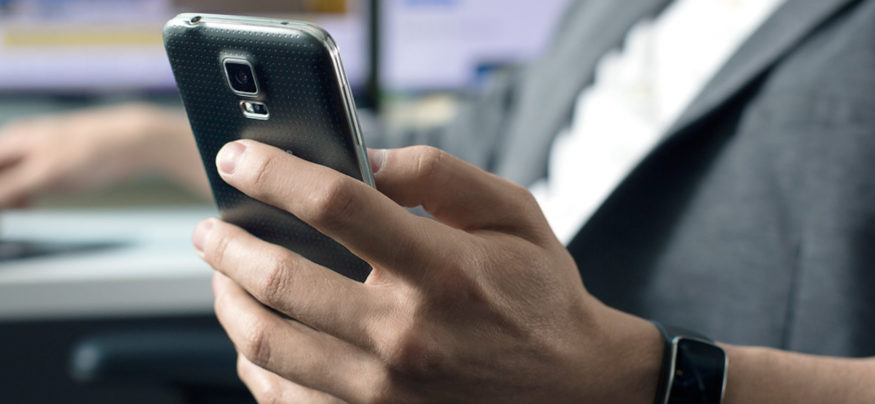“Banking is essential, banks are not,” Bill Gates, then CEO of Microsoft, famously said in 1994.
Mobile phones, however, are essential. And when it comes to the future of banking, more and more people are turning to mobile banking solutions. The Bill and Melinda Gates Foundation sees mobile banking trends as a tool for financial inclusion in the developing world, where Kenya’s M-Pesa has been providing mobile payment and banking options since 2007.
Mobile Banking Apps Are on the Rise
A study by the Federal Reserve reported that 67 percent of millennials now use mobile banking, compared to 18 percent of consumers age 60 or over. This usage gap is projected to widen even more, as McKinsey notes that 85 million millennials, prone to using their mobile devices for banking, are coming of age.
Mobile banking offers many advantages: Users can authenticate their identity and open new accounts, sign up for direct deposit, pay bills, take out loans, and deposit checks by photographing them, all from their mobile devices. Mobile apps such as Venmo let users make and share payments instantly, and Quicken Loans’ Rocket Mortgage even offers a mortgage approval in eight minutes through a process that automatically collects pay and credit information and requires minimal typing by the user, letting them sign their name right from their mobile device.
Achieving Work-Life Balance in the Finance World
Download the infographic to learn how to use your smartphone to maximize productivity. Download Now
In the U.S., Simple and Moven are the leaders in developing banking apps that allow people to pay by mobile, track their expenditures, and save for future goals in electronic envelopes — whether it’s for large expenses such as vacations or a down payment on a house, or for smaller things like a tattoo or a bike tune up.
Although solutions like Check 21 and desktop scanners can help a New York bank offer cash management services to a farmer in Wyoming, mobile banking trends allow marketing by lifestyle, interests or social commitments regardless of a customer’s location. For example, Moven has signed a partnership with the Freelancers Union, while Simple’s site promotes a distinctly Northwestern sensibility.
Limiting the Need for Bank Branches
This increase in mobile banking usage has reduced the need for bank branches, and more than 1,600 branches shut down during 2015.
The branches that remain in business have fewer staff, from 13 full-time employees per branch in 2004 to fewer than six today. A recent study by Citi, “Digital Disruption,” predicts that up to 30 percent of current employees could lose their jobs because of new technologies by 2025. “We have not yet reached the tipping point of digital disruption in either the U.S. or Europe,” the report adds. “Given the growth in FinTech investment, this isn’t likely to continue for long.”
The approach of real-time payments in the U.S. — something more than 20 other countries have had for years — will require some changes to bank IT systems and may also open up the path to new products and services.
Reducing Banking Costs and Increasing Checkout Speed
An opportunity for the growth and promotion of mobile banking lies in chip-enabled EMV cards, as both store staff and consumers can become frustrated by how long it takes to complete a transaction with an EMV card — creating an opportunity to promote the speed of mobile payment services such as Samsung Pay ahead of the 2016 holiday shopping season.
Although the Office of the Comptroller of the Currency noted the value of traditional banking for low-income families, digital banking, especially when coupled with real-time payments, can also offer advantages, reducing their overdraft fees and liberating them from the costs of check-cashing services.
Mobile Banking Risks
Regulators so far have been restrained in their treatment of FinTech firms that don’t hold deposits. Online lenders are drawing some scrutiny from state and federal regulators over treatment of borrowers, disclosures, interest rates and potential discrimination. In 2015 the Financial Crimes Enforcement Network (FinCEN) fined Ripple Labs Inc. $700,000 for failure to implement adequate anti-money laundering (AML) procedures, while Dwolla, an online payments platform, was fined $100,000 by the Consumer Finance Protection Bureau “for deceiving consumers about its data security practices and the safety of its online payment system.”
Despite these risks, the speed, convenience, and rising prevalence of mobile devices across the globe ensure that mobile banking usage will steadily increase in the years to come.
Meet the mobile banking trend head-on with Samsung solutions for the mobile-first bank branch.









